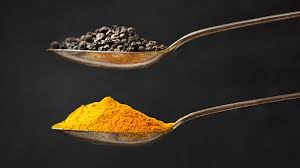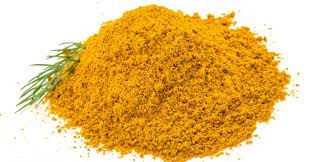Content of the Article
- What is Turmeric?
- Nutritional Value of Turmeric
- What Are the Benefits of Turmeric?
- 1. It has antioxidant properties
- 2.It has an anti-inflammatory effect
- 3. Strengthens the immune system
- 4. Supports digestive system health
- 5. Helps lose weight
- 6. Protects heart health
- 7.Reduces the risk of cancer
- 8.Improves liver health
- 9. Supports brain health
- 10.Reduces the risk of diabetes
- 11.Improves skin health
- 12. Delays aging
- 13. Supports joint health
- 14.Relieves depression
- Skin Benefits of Turmeric
- Benefits of Turmeric for Hair
- How to Use Turmeric?
- Turmeric Supplement
- How Much Turmeric Should Be Consumed Per Day?
- What are the harms of turmeric?
- Turmeric Allergy
Turmeric is making a name for itself as a spice that is rapidly gaining popularity in the health and nutrition world with its miraculous effects. Turmeric, which has been used for centuries especially in India, is known for its many positive effects on health. It strengthens the immune system with its antioxidant properties. It also attracts attention with its anti-inflammatory properties. In our article, we will discuss the health benefits of turmeric in detail. We will explain how and for which problems turmeric can be used. Continue reading this informative article to learn more about the benefits of turmeric.
What is Turmeric?
Turmeric, which has gained popularity in the world of health and nutrition, is known as a spice especially in Eastern cuisine. The spice, which adds flavor to dishes with its yellow color and characteristic taste, also has many health benefits.
Turmeric is obtained from the root of Curcuma Longa, a plant whose roots are underground. This plant is grown extensively, especially in India and parts of Asia. Powdered turmeric is often added to dishes as a spice and used in some traditional medicine practices.
The most well-known feature of turmeric is that it has strong antioxidant and anti-inflammatory properties. The active compound it contains, curcumin, helps reduce oxidative stress by fighting free radicals in the body. It also helps relieve pain by reducing joint inflammation and swelling.

Nutritional Value of Turmeric
The basic nutritional value of this beneficial spice is high thanks to the active compound curcumin it contains. Curcumin is the pigment responsible for turmeric's characteristic yellow color and has many health benefits such as antioxidant, anti-inflammatory, and anti-bacterial.
When we examine the nutritional value of a teaspoon of turmeric, we see that it contains basic nutrients such as energy, protein, carbohydrates, fiber and fat. Additionally, turmeric is rich in minerals such as iron, potassium, calcium, magnesium, sodium and manganese and vitamins such as vitamins A, C, E and K.
According to the U.S. Department of Agriculture (USDA) National Nutrient Database, the nutritional value of 1 tablespoon of turmeric powder is:
- 29 calories
- 0.91 grams (g) of protein
- 0.31 g fat
- 6.31 g of carbohydrate
- 2,1 g fiber
- 0.3 g sugar
- 26 percent of daily manganese needs
- 16 percent of iron needs
- 5 percent of daily potassium needs
- 3 percent of daily vitamin C needs
What Are the Benefits of Turmeric?
The benefits of turmeric, which is frequently preferred both medicinally and in the kitchen, are quite impressive. Here are the health benefits of turmeric:

1. It has antioxidant properties
Turmeric has a strong antioxidant effect thanks to the compound called curcumin it contains. Curcumin prevents cell damage by fighting free radicals in the body and has a rejuvenating effect.
2.It has an anti-inflammatory effect
Turmeric prevents the inflammatory process in the body, thanks to the curcumin it contains. It is known to be especially effective in the treatment of chronic inflammatory diseases such as rheumatoid arthritis.
3. Strengthens the immune system
Turmeric has the effect of strengthening the immune system. When consumed daily, it reduces the risk of infection in the body and provides a protective effect against diseases.
4. Supports digestive system health
Turmeric has positive effects on the digestive system. It facilitates digestion and reduces gas and bloating. It is also good for conditions such as stomach ulcers.
5. Helps lose weight
Turmeric helps lose weight by accelerating metabolism. It also increases fat burning and keeps appetite under control.
6. Protects heart health
Turmeric protects heart health by lowering cholesterol levels. It reduces the risk of serious diseases such as heart attack and stroke. It regulates homocysteine levels and, accordingly, also controls cholesterol levels.
7.Reduces the risk of cancer
Turmeric containing curcumin has effects that prevent the growth and spread of cancer cells. It has been observed that it is especially protective against breast, prostate and colon cancer. Turmeric prevents cancer and childhood leukemia with the help of its main component, curcumin.
8.Improves liver health
Turmeric has detoxifying effects to maintain liver health. It helps cleanse the liver, which reduces the risk of cirrhosis and jaundice.
9. Supports brain health
Turmeric increases brain functions. Therefore, it improves memory and concentration.
10.Reduces the risk of diabetes
Turmeric has a blood sugar lowering effect. Therefore, it helps reduce the risk of diabetes caused by high blood sugar.
11.Improves skin health
Turmeric relieves skin problems. It has a significant effect especially in inflammatory skin diseases. It also makes the skin look young and healthy.
12. Delays aging
Turmeric shows anti-aging effects by reducing cellular damage caused by aging. Developing due to aging Alzheimer's diseaseIt may also delay the onset of
13. Supports joint health
Turmeric relieves joint pain and supports joint health.
14.Relieves depression
Turmeric helps relieve symptoms of depression thanks to its anti-depressant effect.
In other words, turmeric is a natural source of healing and positively affects our health in many ways. However, it is important to consume it regularly and in a balanced way.
 Skin Benefits of Turmeric
Skin Benefits of Turmeric
Turmeric stands out especially with its effects on skin health. We can list the benefits of turmeric for the skin as follows:
- The anti-inflammatory properties of turmeric help keep the skin healthy. The compound it contains, called curcumin, reduces skin inflammation and relieves irritation and redness.
- Turmeric also helps fight signs of skin aging. Thanks to its antioxidant properties, it prevents damage caused by free radicals and makes the skin look younger and more vibrant.
- Turmeric is also a great natural solution for those who suffer from skin problems such as acne and acne. Thanks to its antibacterial properties, it fights bacteria on the skin and prevents the formation of acne.
- Another benefit of turmeric for the skin is that it eliminates color inequalities on the skin. Turmeric regulates melanin production in the skin. In this way, it ensures that the skin has a more balanced color.
- Applying turmeric to the skin makes the skin shine. Turmeric masks or creams nourish, moisturize and revitalize your skin.
- Turmeric provides quick relief from burns thanks to its antiseptic properties. The way to use turmeric for burns is as follows: Mix it with aloe vera gel and apply it on the wounds.
- Turmeric helps remove facial hair. You can make a facial treatment by mixing turmeric and chickpea flour. When you apply this to your face, facial hair growth will be inhibited. This paste should be applied continuously for about a month to get effective results.
- This spice with excellent healing properties heel cracks You can also use it for. If your heels are cracked, apply a few drops of coconut oil and 3 scoops on your heels before taking a bath. You can apply the turmeric mixture for 10 to 15 minutes. Doing this regularly will soften your heels.

Benefits of Turmeric for Hair
Many people do not know the benefits of turmeric for hair. Now let's talk about the benefits of turmeric for hair.
- The curcumin substance contained in turmeric has positive effects on hair health. Curcumin strengthens hair follicles hair lossIt helps reduce . It also supports faster and healthier hair growth by nourishing the hair follicles.
- The antibacterial and antifungal properties of turmeric help prevent infections on the scalp. It protects hair health by preventing the growth of fungi and bacteria on the scalp. Thanks to these properties, it is an effective natural solution for people with dandruff problems.
- In addition, turmeric is also known to darken hair color. It is an ideal solution especially for those who want to darken their hair naturally. When turmeric masks are applied regularly, a natural shine and color intensity can be achieved in the hair.
There are many ways to use turmeric in hair care. You can apply turmeric powder to your hair by adding it to hair masks or using turmeric oil. However, the point to be careful is that turmeric may stain the hair because it is yellow in color. Therefore, it is important to rinse your hair thoroughly before use.

How to Use Turmeric?
The most common use of turmeric is as a spice in dishes. Turmeric, which is frequently used especially in Asian cuisine, adds a pleasant color and aroma to dishes. However, it is possible to consume turmeric in different ways other than using it as a spice.
- Turmeric tea is another way to use turmeric. You can brew it by adding a teaspoon of turmeric to a cup of hot water. If you want, you can sweeten it by adding lemon or honey. Turmeric tea is a frequently preferred drink to regulate digestion, strengthen the immune system and provide a detox effect.
- Turmeric powder is an easy way to use turmeric. You can add a teaspoon of turmeric powder to meals or smoothies. Turmeric powder adds an antioxidant effect to dishes without changing their nutritional value.
- turmeric oil It is also a common form of turmeric use. However, it is an oil that should be used with caution. It is recommended to be used externally only as massage oil. Consuming it orally or applying it directly to the skin may cause some side effects.
- You can also use turmeric fresh. You can peel turmeric root, grate it or crush it and add it to your meals. Fresh turmeric is used as a spice and is also preferred as a natural solution to various health problems.
There are a few points you should pay attention to when using turmeric. Turmeric consumption should be limited, especially during pregnancy or in those using blood thinners. Also, consumption of high doses of turmeric may cause some side effects. We will talk about this issue in the "Harms of Turmeric" section later in our article.
How to use turmeric for immunity?
Turmeric, preferred as a natural option to strengthen the immune system, is known for its antioxidant and anti-inflammatory properties. You can use turmeric to strengthen immunity as follows:
- In order for turmeric to have the best effect, it is beneficial to choose organic and natural ones. Organic turmeric is purer and more effective because it does not come into contact with chemical drugs.
- Curcumin, the active ingredient of turmeric, is a fat-soluble compound. Therefore, adding oil when consuming turmeric allows curcumin to be better absorbed by the body. For example, you can use turmeric by frying it in oil or cooking it with extra virgin olive oil.
- To increase the absorption of turmeric, you can use it by combining it with black pepper. Black pepperThe compound called piperine found in turmeric helps turmeric be better absorbed by the body. In this way, you can benefit more from the benefits of turmeric.
How to use turmeric for eczema?
EczemaIt is a skin disease that manifests itself with redness, itching and blisters on the skin. This condition is often caused by dry skin, allergic reactions or genetic factors. There are many methods used in the treatment of eczema, and turmeric, which is a subject researched by many people, is one of these treatment options.
The compound it contains, called curcumin, contributes to the antioxidant and anti-inflammatory properties of turmeric. For this reason, it may be effective in treating inflammatory skin diseases such as eczema.
- Turmeric can be used in different ways to treat eczema. First, you can apply turmeric directly to the skin. You can prepare a mask by mixing a teaspoon of turmeric with a teaspoon of natural yoghurt or honey. Apply this mask to the eczema area, wait 15-20 minutes, and then rinse with clean water. This method relieves itching and supports the skin's healing process.
- You can also consume a teaspoon of turmeric daily by mixing it with a glass of warm water. This drink controls eczema by reducing inflammation in the body.
However, it is important to consult a specialist before using turmeric treatment for eczema. Because the treatment of skin diseases such as eczema varies from person to person and in some cases superficial treatment methods may not be sufficient.
How to use turmeric for joint pain?
Joint pain is a health problem that negatively affects the lives of many people. Recent research has revealed that turmeric has anti-inflammatory and pain-relieving properties. Therefore, the use of turmeric for joint pain has become quite popular. Curcumin, the active component of turmeric, is considered an effective treatment against joint pain. However, it is important to use turmeric correctly to show its full benefits. So how to use turmeric for joint pain?
- You can drink turmeric tea to relieve joint pain. Add 1 teaspoon of turmeric to a glass of hot water and let it brew for 10-15 minutes. Then, add cinnamon or ginger into it. You can consume this tea 2-3 times a day.
- You can mix turmeric with honey to increase the pain relieving effect. Mix one tablespoon of turmeric powder with one tablespoon of honey. You can consume this mixture once a day.
- You can mix turmeric and olive oil to massage against joint pain. Mix equal amounts of turmeric and olive oil and massage into painful areas. You can relieve pain by using this mixture regularly.
- There are also turmeric supplements for joint pain. However, you must consult a doctor before using supplements.
How to use turmeric for flu?
When flu season comes, the first thing that comes to almost everyone's mind is natural methods that can be consumed to strengthen the immune system. Turmeric is one of these natural methods.
Turmeric has anti-inflammatory and antioxidant properties thanks to the component called curcumin. In this way, it prevents conditions such as inflammation and oxidative stress in the body. Additionally, turmeric also has the ability to strengthen the immune system. With its antiviral effect, it prevents harmful microorganisms from entering the body and prevents the spread of infections such as flu. So how to use turmeric for flu?
- It should be noted that it can be used in several different ways. Turmeric tea comes first. You can prepare your tea by adding a teaspoon of turmeric powder to a glass of warm water. Optionally, you can also add lemon juice and honey. Consuming this tea several times a day will help strengthen the immune system and therefore cure the flu.
- Turmeric can also be added to meals. Adding turmeric, especially to soups, vegetable dishes and sauces, will both add flavor and create a beneficial element for health. However, for turmeric to be effective, it must be consumed with oil. Therefore, when adding turmeric to meals, it is necessary to also add some olive oil or coconut oil.
- Finally, it is worth noting that turmeric can also be consumed in capsule or tablet form. Turmeric supplements, which you can obtain from pharmacies or stores selling natural products, help strengthen the immune system. However, it is important to consult a healthcare professional before using these supplements.
How to use turmeric for rheumatism?
Rheumatism is a disorder that negatively affects the quality of life and makes it difficult for the person to do daily activities. Turmeric, one of the medicinal plants, is a spice that has anti-inflammatory properties thanks to the curcumin compound it contains. Therefore, it can also be used in the treatment of rheumatism. So, how to use turmeric for rheumatism?
First of all, it is important to consult your doctor before consuming turmeric. Because turmeric may have some side effects and interact with some medications. After getting your doctor's approval, you can use turmeric in the following ways:
- Mix 1 teaspoon of turmeric powder with 1 glass of hot water and let it brew for 5-10 minutes. Then, you can optionally add lemon or honey. You can drink 2-3 cups of turmeric tea a day.
- You can use the extract form to increase the intake of curcumin, the main active ingredient of turmeric. For this, you can buy turmeric extract from places that sell natural health products. It is important that you follow the instructions for use.
- You can massage using the oil form of turmeric. It helps relieve pain in the joints. However, test your skin before applying turmeric oil directly to the skin. It is important to prevent any risk of allergic reactions.
- You can also get turmeric into your body by using it in your meals or smoothies. It is a good alternative, especially when you add it to salads or soups, as it adds flavor and provides health benefits.
Remember, no herb or spice alone can provide miraculous results in the treatment of rheumatism. In addition to using turmeric regularly, it is important to maintain a healthy lifestyle, exercise regularly, and follow the treatment methods recommended by your doctor.
How to use turmeric for hemorrhoids?
Hemorrhoids in medical language hemorrhoids It is a disease called diarrhea and is a problem experienced by many people. This condition is caused by swelling and painful inflammation in the veins around the anus. There are various treatment methods for people facing the problem of hemorrhoids, and one of them is the use of turmeric.
Turmeric helps relieve hemorrhoid symptoms thanks to its anti-inflammatory properties.
- Turmeric is usually available as a supplement in powder or capsule form. It is a more effective method to treat hemorrhoids by taking turmeric powder internally rather than applying it directly to the inflamed area. For this, you can consume turmeric powder by mixing it with yoghurt or milk.
- Curcumin, the active ingredient in turmeric, helps reduce inflammation. Therefore, consuming turmeric daily may be beneficial to relieve hemorrhoid symptoms.
- Since turmeric is a natural anti-inflammatory, it also helps relieve swelling and pain due to hemorrhoids. However, instead of using it alone for the treatment of hemorrhoids, it may be more effective to use it together with other treatment methods by talking to your doctor.

Turmeric Supplement
Turmeric is a powerful herbal supplement that has been used for nearly a thousand years. Turmeric, one of the indispensable spices of Indian cuisine, has active compounds that have many health benefits. In recent years, many people have been using turmeric supplements to support healthy living.
Turmeric has anti-inflammatory properties thanks to curcumin, one of the active ingredients it contains. In this way, it helps reduce inflammation in the body and plays an effective role in preventing many diseases. At the same time, turmeric reduces the effects of free radicals in the body and helps prevent cell damage, thanks to its antioxidant properties.
Turmeric supplement supports digestive health. Turmeric, recommended for people with stomach and intestinal problems, has a relaxing effect on the digestive system and helps eliminate digestive problems. At the same time, turmeric supports liver health and helps purify the body with its detox effect.
Turmeric supplements are also beneficial for brain health. Curcumin is thought to have a cleansing effect on amyloid plaques accumulated in the brain. These plaques play a role in the formation of neurodegenerative diseases such as Alzheimer's. Therefore, taking turmeric supplements regularly helps maintain brain health.
However, it is necessary to pay attention to important points when using turmeric supplements. It is important to adjust the dosage carefully and always consult a specialist before long-term use. Additionally, those who are pregnant or breastfeeding, have a chronic health problem, or are about to undergo surgery should consult their doctor before using turmeric supplements.

How Much Turmeric Should Be Consumed Per Day?
Those who learn the benefits of turmeric want to consume this miracle spice daily. However, it is important to consume turmeric in the right amount. So how much turmeric should be consumed per day?
Experts generally state that daily consumption of 1-3 grams of turmeric is sufficient. When consumed in this amount, it is possible to obtain the best health benefits. However, since everyone's body structure and needs are different, it is necessary to be careful when determining this amount.
Consuming turmeric fresh provides more benefits than its powdered form. But finding fresh turmeric can be difficult. In this case, you can easily use powdered turmeric.

What are the harms of turmeric?
Did you know that turmeric, which stands out with its antioxidant properties, anti-inflammatory properties and regulating effect on the digestive system, is harmful in excess? Now let's talk about the harms of consuming too much turmeric.
- Stomach disorders: The curcumin substance contained in turmeric can cause stomach disorders when consumed excessively. It is especially recommended for people with problems such as stomach ulcers or gastritis to limit turmeric consumption.
- Blood thinning effect: Turmeric has a blood clotting reducing effect. Due to this feature, it is important for people who use blood thinners to be careful about turmeric consumption. Otherwise, the risk of bleeding increases.
- Diabetes effect: Turmeric is known for its blood sugar-lowering effect. However, diabetic patients should consult a doctor before consuming turmeric. Because it may interact with blood sugar-lowering medications and unpredictable results may occur.
- Pregnancy and breastfeeding period: There is not enough scientific data on the use of turmeric during sensitive periods such as pregnancy and breastfeeding. For this reason, turmeric consumption is generally not recommended during these periods or should be done under the supervision of a doctor.
- Allergic reactions: Some people may have allergic reactions to turmeric. Skin redness, itching or symptoms such as difficulty breathing may occur.
- Drug interactions: Turmeric may interact with some medications and change their effects. It should not be forgotten that there may be an interaction between turmeric consumption and medications, especially blood thinners, antidepressants, and stomach medications. For this reason, it may be dangerous to consume turmeric along with medications without a doctor's recommendation.

Turmeric Allergy
Although it has proven to be beneficial for many people, some people may have an allergic reaction to turmeric. Turmeric allergy may occur in people who use foods or supplements containing turmeric. Allergic reactions usually manifest themselves with symptoms such as skin redness, itching and rash. Some people may also experience allergic rhinitis symptoms such as nasal congestion, sneezing, and watery eyes. In rare cases, turmeric allergy can lead to more serious reactions such as anaphylaxis.
People with turmeric allergy should be careful when consuming foods containing turmeric. For this reason, it is important to read labels carefully and choose fresh and natural foods as much as possible. Additionally, caution should be exercised with turmeric supplements. If you are allergic to turmeric, it is important to consult your doctor to learn the precautions you should take.
Although turmeric allergy is a rare type of allergy, it can have serious consequences like any allergy. Therefore, if you think you are allergic to turmeric, it is very important to consult a doctor and get an allergy test.
As a result;
Turmeric has many health benefits. With its antioxidant properties, it cleanses the body and strengthens the immune system. It also protects against joint disorders, cancer risk and heart disease by reducing inflammation. It regulates digestion, supports the liver and improves brain health. It is important to consume turmeric regularly to benefit from its benefits.










